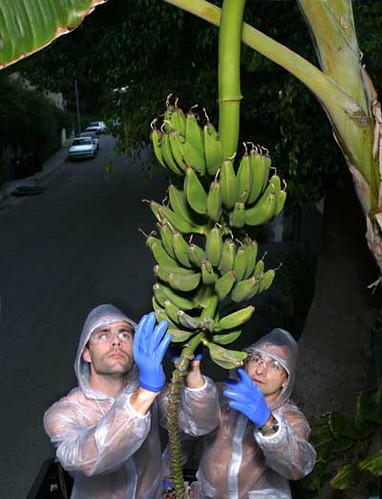We call upon the city and urban planning groups to begin plantings that yield edible goods to be shared by the city's citizens. How can these resources be developed to the benefit of all parties? What ethical or contractual obligations are incurred? It has been observed among many hunter-gatherer societies that when people “have more of something than they immediately need, they should carry out their moral obligation to share it out.”(Via We Make Money Not Art.)
All property owners with suitable sites should be obliged to plant edible trees, or else be taxed to provide food for the poor. Most European cities have communal gardens, which often provide up to half the food of poor families. We need city fruit parks that open their fields to anyone who is hungry. To discourage profiteering, individuals could be limited to taking only as much fruit as they can carry in their hands. This way everyone could give according to their capacities and receive according to their needs.
6.23.2005
Fruit map: "Free food is available at every time of the year on the streets of Los Angeles. According to the law, if a fruit tree grows on or over public property, the fruit is no longer the sole property of the owner." From this premise, and driven not by a shallow desire to deflower (or de-fruit) LA trees, the project Fallen Fruit set out to map all the instances where fruit-bearing trees on private property overhang public spaces. The point they seek to raise is political, according to the website:
Subscribe to:
Post Comments (Atom)

1 comment:
Paul,
Thanks for posting this. I've been wondering if I'm the only one who eats mulberries and cherries from trees in my Minneapolis neighborhood, and have thought about mapping them.
Post a Comment